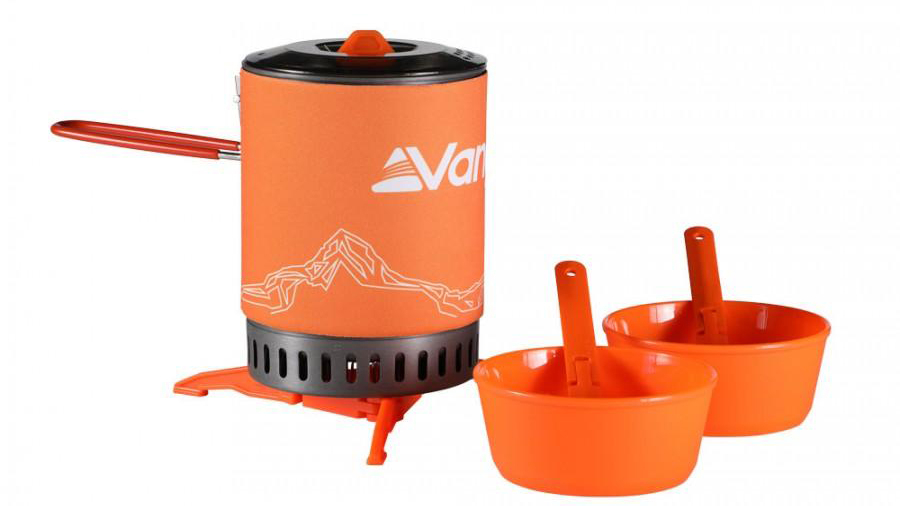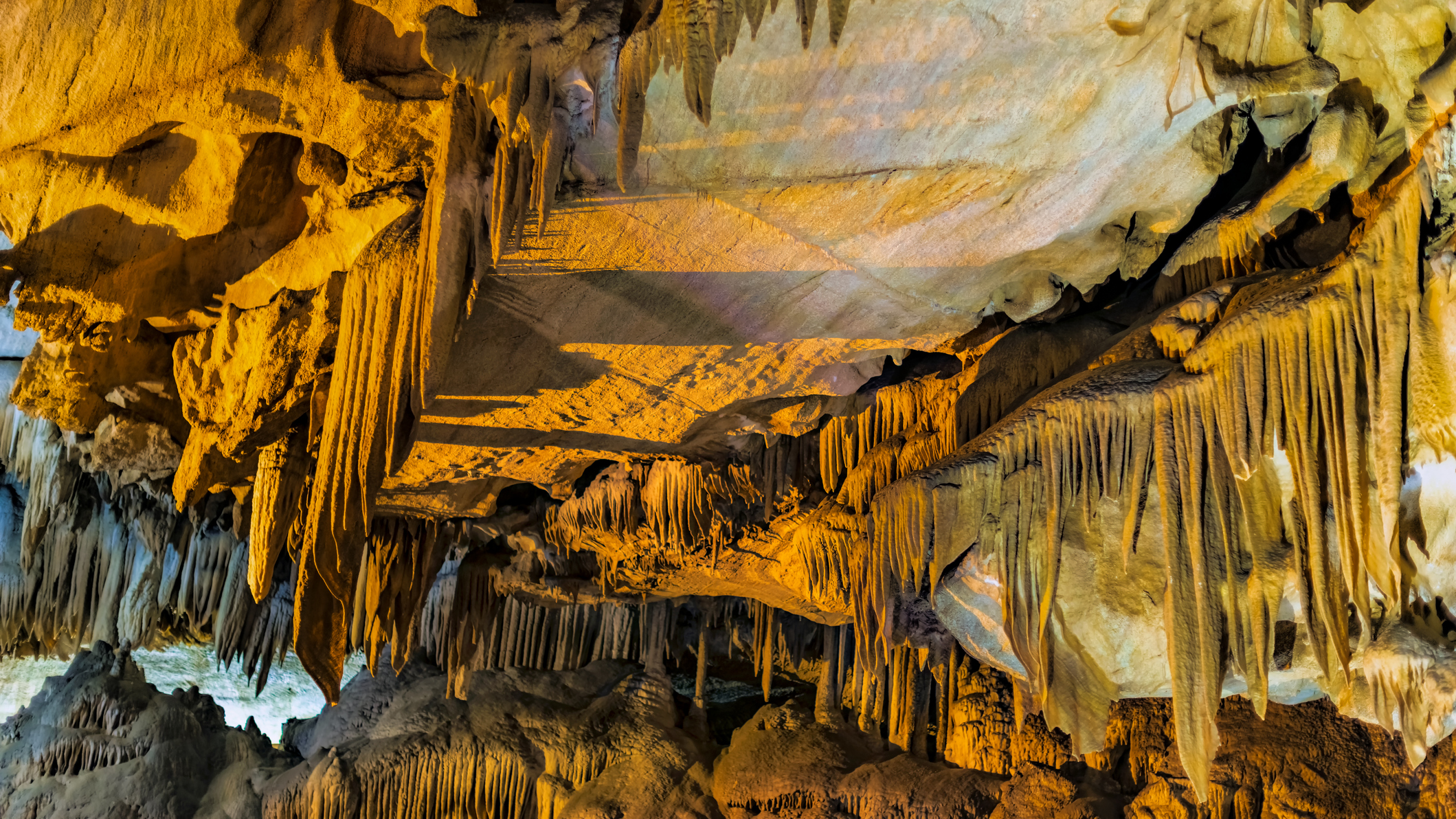Advnture Verdict
There’s lots to like about the practical Vango Atom Stove and Ultralight Heat Exchanger Cook Kit, which basically gives you all you need to knock up simple meals for two on the trail. The cooking pot is sturdy and efficient. The stove is a bit more basic, but does the job. And at this price you can’t moan.
Pros
- +
Great value set
- +
Versatile combo with all you need to cook up a meal for two
- +
Includes a practical and sturdy cooking pot
- +
Nests neatly as an all-in-one system
Cons
- -
Simple stove is not as sophisticated as its rivals
- -
Packed size is slightly bulky
- -
Not particularly wind-resistant
You can trust Advnture
First impressions
When you put the Vango Atom Stove and Ultralight Heat Exchanger Cook Kit together for the first time, it looks pretty much like a Jetboil. It isn’t far off, although it isn’t quite a true ‘all-in-one’ cooking system, since the heat exchanger pot simply rests on top of the stove’s folding arms, rather than the two elements locking together.
This means it isn’t quite as fast to boil water as a ‘proper’ all-in-one system, nor as wind-resistant or fuel efficient. On the other hand, it is arguably much more versatile, because the Vango stove can be used with any other camp cookware (and similarly, the pot can be used with any other small backpacking stove).
- Cook outdoors under any conditions with out best camping stoves
- Pre-prepared meals vs DIY camp cooking: what's best to eat on your trip?
- Need to stay fed outdoors? Check out the best backpacking meals
And when tested in calm conditions, we still boiled 500ml of water in under three minutes, so it’s certainly no slouch. It’s also substantially cheaper, and for hikers on a budget or those just getting to grips with long-distance walking or wild camping, that makes it an attractive option.
Perhaps with that in mind, the Cook Kit contains essentially all you need to knock up a meal, even down to individual serving bowls and folding sporks.
• RRP: Vango Atom Stove: £20 (UK); Ultralight Heat Exchanger Cook Kit: £45 (UK)
• Power: 3,000W / 10,236 BTU/hr
• Packed weight (combined): 507g / 17.9oz
• Minimum weight: 356g / 12.5oz
• Burner diameter: 3.3cm / 1.3in
• Pot support diameter: 11.4cm / 4.5in
• Assembled height (with 227g gas canister): 16.2cm / 6.4in
• Packed size (HxWxD): 17 x 12 x 11cm / 6.7 x 4.7 x 4.3in
• Boil time (500ml of water at sea level in zero wind, air temp 16°C / 61°F, starting water temp 11°C / 52°F): 2min 38 secs
In the field
Real world performance matched our initial boil test, provided you don’t attempt to brew up in breezy locations. The Atom Stove is a powerful little beast, but it is simple in design and not very windproof. Set up your camp kitchen out of the wind though, and you can be scoffing a ration pouch or sipping a steaming mug of coffee in no time. Simmer control is a bit limited, but then this isn’t a system designed for gourmet meals.
The Vango pot’s generous 1-litre capacity (which does actually hold a full litre of water, unlike the nominal capacities quoted by some other manufacturers) makes meal times easy, aided by its efficient heat exchanger base. The pot is fitted with a robust folding handle and a sturdy clear plastic lid, which has an easy-grab silicon tab.
These are simple and straightforward features, but ones that plenty of other brands seem to get wrong, and which guard effectively against scalded fingers. The two small plastic bowls and folding sporks did the job for us, though their long-term durability might be slightly doubtful compared to aluminum or titanium alternatives.
Still, all the components pack away neatly into the pot, with room to spare for a 230g gas canister (which is the bigger size that you’ll find stocked in most camping shops). It’s a tidy system that is comparable in overall weight to most Jetboil systems, though it is admittedly a bit bulkier owing to the larger-capacity cooking pot.
In terms of drawbacks, we found that the setup can be a bit unstable in use, because that pot simply sits on top rather than locking to the stove. The stove itself is a cheaper and simpler screw-in type that lacks the sophisticated features found on more expensive models, like a micro regulator and built-in ignition, so you might find you burn through a bit more gas than with some other systems. And whatever you do, don’t forget your matches.
An outdoors writer and editor, Matt Jones has been testing kit in the field for nearly a decade. Having worked for both the Ramblers and the Scouts, he knows one or two things about walking and camping, and loves all things adventure, particularly long-distance backpacking, wild camping and climbing mountains – especially in Wales. He’s based in Snowdonia and last year thru-hiked the Cambrian Way, which runs for 298 miles from Cardiff to Conwy, with a total ascent of 73,700 feet – that’s nearly 2½ times the height of Everest. Follow Matt on Instagram and Twitter.


